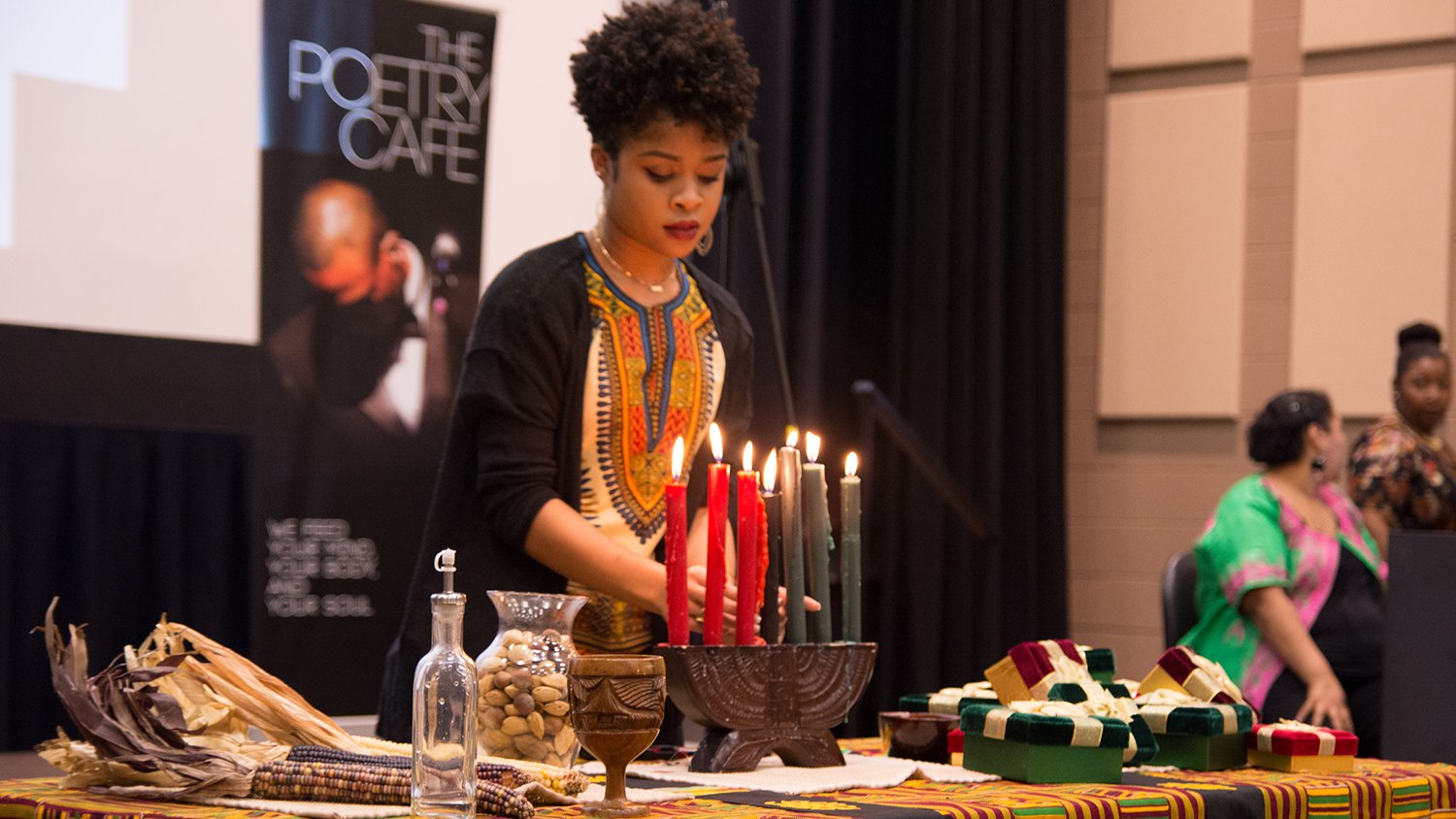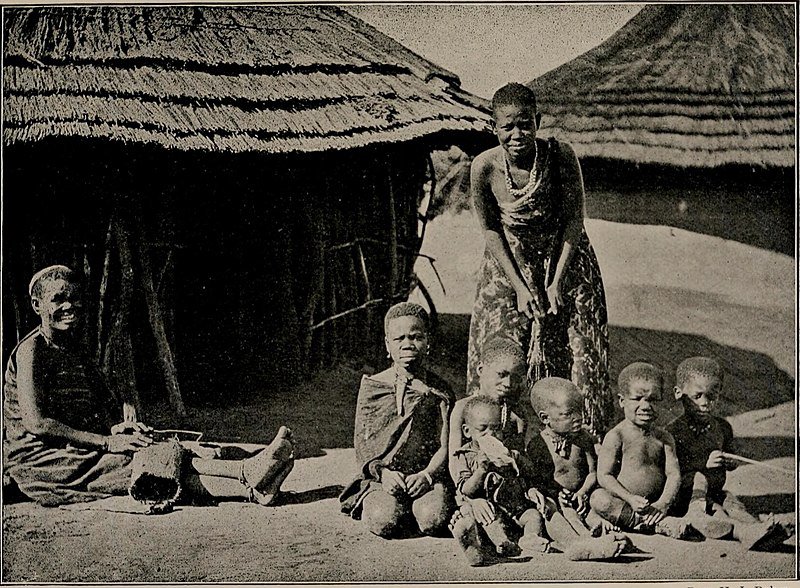The “Mother” in Motherland
Search terms: African Diaspora, African Music
Researching the African Diaspora was not only about fulfilling a requirement or filling in the blank that many Black Americans have of Africa, but became a journey of rediscovery and the quest to learn what made Africa truly, below a surface -level the “Motherland” to many in the African diaspora. Is it just the knowledge that many of us in the Black Diaspora, have of what the historical event Transatlantic Slave Trade was to us? Or is it something much deeper, more soulful that draws us back to the “Motherland” that is Africa to many of us as the global Black diaspora. Listening to the stories, experiences and viewpoints of the HistoryMakers that I discovered in the Digital Archive exposed me to the below surface historical and societal understanding of what it means to be apart of the African diaspora.
The HistoryMakers I came across had a tumultuous amount of things in common: coming from educated backgrounds, community life, and presence and status in a sense, but all of them also have what I recognized as a yearning. Not just a yearning to know more, to teach others about more, but a yearning for an embodying connection ( whether through music, dress, and intellectualism), to Africa. All that I discovered had a genuine motivation that kept them wanting to know more, travels more, and do more to fortify their connection to what many of them called “The Motherland”.
The stories that I discovered were not only filled with motivation for connection and knowledge of the Motherland but also with versatility. That versatility included the view of the African Diaspora through faith, fashion, identity, and music.
FAITH
During his interview with Larry Crowe, Minister Reverend B. Herbert Martin, Sr. talked about the growth in the spiritual connection of many Black American churches to the culture of Africa.
“So, these dual kind of examples have existed in the black church all along. So there's always been that ethos of African-ness in them, it's always been there. However, it's subdued, it's been subdued. And I think in the last twenty years I would say, there's been this recovery of an African consciousness, especially since the 1960s--so, this recovery of African consciousness. And those of us who could afford the journey back to the continent to begin to study and to recover some of the African traditional spirituality, we've done it. And we have brought back, hopefully, the best of that, you know, to our local context in America. So, as Africans in the Diaspora, we are beginning to connect back to the indigenous people on the continent.”
HISTORY
Keeping in mind the mission and overall purpose of the HistoryMakers, the promotion of Black Oral History, that practice itself is a part of the ancestral practice within African culture.
During her interview with Larry Crowe, Historian Yvonne Seon talks about the practice of Oral history and how that ancestral practice has found its way to African American culture.
“Part of the study of Africa has taught me that African people do not trust the written word, they trust the spoken word for a number of reasons, one of them being that you can, you can interpret the spoken word a lot more easily than you can the word on the page because there's so many, there's so many opportunities for divergence between the cold, sterile page for--you can same the same sentence in three different ways and have three different sentences. You know, I'm fine. I am fine. You know there's just, there's so many different interpretations just by where you put the, the emphasis in a sentence. “
FASHION
During her interview with Robert Hayden Lawyer, Lezli Baskerville talks about her discovery of African history and culture and how it had an affect on the way she presented herself to a far removed-from-African culture society.
“ But this metamorphosis occurred when I decided, not that I'm not going to associate with white people, but into this friendship, I'm going to bring new information about myself and my ancestry and so that my friends who were Jewish, my friends that were Italian, my friends that were all of the other ethnic--ethnicities could celebrate their pride and their heritage and we did when I wanted to celebrate my Africanness and change my name and change my hair style”
“I wanted to celebrate my Africanness and change my name and change my hair style and wanted the classes and all of my friends to learn more about great African Americans, but learn about Africans in Africa, then Africans in the diaspora, I lost a lot friends. In my own home, my grandparents thought, you know, "You can't continue to come to our church with your wild hairdo, with these outlandish clothes, talking this language."
MUSIC
Interviewed by Adele Hodge, Musician Kahil El’Zabar talks the influence of African music on contemporary Hip-Hop in today’s music.
“You know these kids, DNA intuitively, are calling for a very ancient kind of feeling.”
“No matter if you're a king or the poorest person economically, we are all rich with culture. And if we can learn from that model, which I'm seeing so called world music which is predominantly African influenced now coming into the aesthetics of mainstream society.”
Painter Jeff Donaldson, interviewed by our founder Julieanna Richardson, spoke on the African American music genre known as blues and how he experienced that genre many miles away in Africa.
“What, what, what that experience showed me was that there wa--there was a oneness. It was--and I'm, I'm not talking about something being homogeneous. But there was--you know you hear blues in all of Africa. And you know we had been brought up to believe that blues was the consequence of slavery? And you got blues in Ethiopia that make you cry even if you don't know what they're talking about. I mean it's that sad.”
IDENTITY
HistoryMaker and Photojournalist Chester Higgins, Jr. was interviewed by Shawn Wilson and mentioned the deeper meaning of African identity as it relates to the African diaspora.
“Because we feel alienated, because we don't feel that we have a cohesive sense of identification that is, that manifests itself in a Torah or a nation we, because we don't have a particular, the way we came over our memories have been severed, it's not unusual for people to say you know I didn't come from Africa (unclear) Africa. So, these alienations, these things have to be addressed. These things have to be healed.”
IDENTITY
Community activist Juanita Passmore, interviewed by Larry Crowe, spoke on her experience with traveling to African countries and her relatability to the people there.
“I don't think I felt any different, because you know, being a black American, we are all, all different shades. And so, it's almost like being at home when you see different people of different colors and the different shades that are in those colors. But I think that when I went to South Africa there was a different feeling because many of the people in South Africa are so reminiscent of the people in my family.”
“My last name through marriage is Passmore, so I knew that when I got there I would have a unique name. Much to my surprise, Passmore is as common as Smith is in, in the United States. There were so many Passmores that (laughter) I couldn't get over it. Every other person I met was named Passmore, and so many of them looked like my relatives. So yeah, I think South Africa, out of the African countries that I went to, Johannesburg and Fenda--I'm forgetting some--Venda and all, were people that were just like me.”
UNITY
Printmaker and museum director Margaret Burroughs, interviewed by our founder Julieanna Richardson, spoke on what Black unity means as it relates to the African diaspora.
”Well, now my observation is that--what [Kwame] Nkrumah [President of Ghana] was speaking for a united Africa--that Africa needs to unite otherwise it wouldn't be in the position it's in, but I realize that there's certain forces that work to keep it disunited, just like for the same reason that there's certain forces--black and white in the United States, who keep us disunited. Like if, if African American people in the United States could unite we could solve all the problems and everything else like that. But then you have people like--what's that fellow, Mr. [Clarence] Thomas in the [U.S.] Supreme Court and some of the others and all, who are just the opposite in, in the same way that Africa needs to, to unite, but there are so many forces there that just keeps up that tribalism and they're fighting against each other, and so forth and so on.”
“Well, I think that, that people should know that--I mean this--for this--the same reason that we're, we're disunited was because of these, these black people who were selling their own people away and, and it's, it's the same way that in the United States that you have black 'Uncle Toms' that are dealing and selling us off in the same way.”
The African diaspora, as I search through the digital archives, pieced together the stories of many with interest in the African diaspora, and gave me a clear vision of what is below the surface of the draw that the “Motherland” to many possesses. The visions of faith, fashion, identity, music, and unity, that I saw clearly in the HistoryMakers’ stories served the purpose of relinquishing the needed information that many don’t possess about the Motherland. It calls to those who came from its destination of Africa, in many disciplines.
As Painter Jeff Donaldson is quoted saying:
“A different--And I mean I'm not saying Africa is better than anything. I'm saying it's different! And that difference is in us.”
Sources:
Reverend B. Herbert Martin, Sr. (The HistoryMakers A2003.294), interviewed by Larry Crowe, December 11, 2003, The HistoryMakers Digital Archive. Session 1, tape 7, story 6, Reverend B. Herbert Martin, Sr. describes the embrace of African traditions by African American churches
Yvonne Seon (The HistoryMakers A2003.154), interviewed by Larry Crowe, July 18, 2003, The HistoryMakers Digital Archive. Session 2, tape 9, story 4, Yvonne Seon talks about the significance of oral tradition to the African diaspora
Kahil El'Zabar (The HistoryMakers A2003.072), interviewed by Adele Hodge, April 5, 2003, The HistoryMakers Digital Archive. Session 1, tape 3, story 3, Kahil El'Zabar talks about African influence in contemporary hip hop music
Lezli Baskerville (The HistoryMakers A2006.130), interviewed by Robert Hayden, November 6, 2006, The HistoryMakers Digital Archive. Session 1, tape 2, story 9, Lezli Baskerville remembers embracing her African heritage\
Chester Higgins, Jr. (The HistoryMakers A2005.205), interviewed by Shawn Wilson, September 2, 2005, The HistoryMakers Digital Archive. Session 2, tape 9, story 7, Chester Higgins, Jr. talks about the African diaspora
Juanita Passmore (The HistoryMakers A2002.088), interviewed by Larry Crowe, June 11, 2002, The HistoryMakers Digital Archive. Session 1, tape 4, story 8, Juanita Passmore describes the kinship she discovered with South Africans in her travels for Johnson Products Company
Margaret Burroughs (The HistoryMakers A2000.012), interviewed by Julieanna L. Richardson, June 12, 2000, The HistoryMakers Digital Archive. Session 1, tape 5, story 1, Margaret Burroughs discusses her views on the African Diaspora
Jeff Donaldson (The HistoryMakers A2001.023), interviewed by Julieanna L. Richardson, April 23, 2001, The HistoryMakers Digital Archive. Session 1, tape 6, story 4, Jeff Donaldson discusses the sense of oneness he found between Africa and the diaspora








